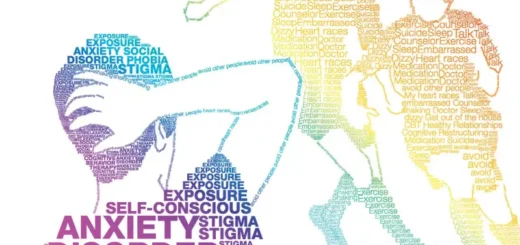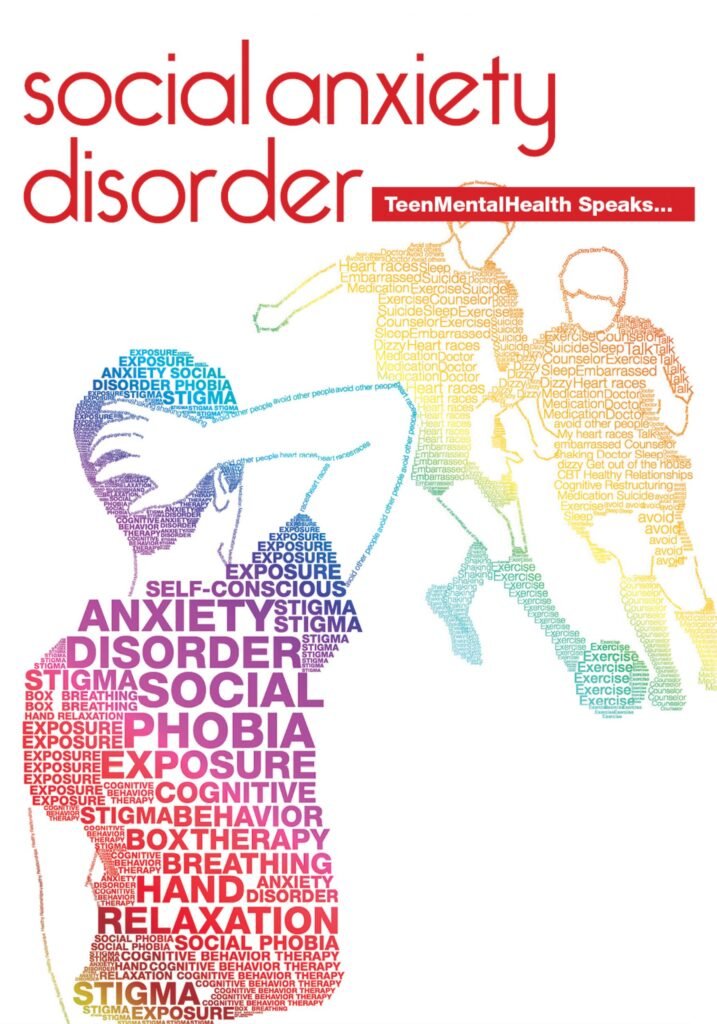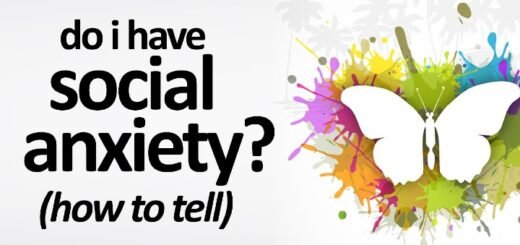Social Phobia in New Zealand: The Hidden Epidemic
Social phobia, or social anxiety disorder, is more than just shyness or occasional nerves. It’s a pervasive condition that can cause intense fear about everyday social situations, leading individuals to avoid interactions that might cause embarrassment or judgment. In New Zealand, social phobia remains a largely hidden epidemic, affecting a significant portion of the population, particularly among teenagers who are navigating complex social landscapes.
Understanding and addressing social phobia is crucial because its impact goes beyond occasional social discomfort—it can hinder academic performance, disrupt relationships, and limit career opportunities, profoundly affecting life’s quality and fulfillment. This article aims to shed light on this often-overlooked condition, offering insight into its causes, impacts, and available resources. By demystifying social phobia, we can empower individuals to seek help and find effective coping strategies, encouraging a more supportive and informed community across New Zealand.
Whether you’re a teenager struggling with these feelings yourself, a parent concerned about your child, or just someone interested in learning more, this comprehensive guide will provide valuable information and practical advice on navigating and overcoming social phobia.
Key Sections Of Social Phobia
Understanding Social Phobia
Social phobia, or social anxiety disorder, is characterized by overwhelming anxiety and excessive self-consciousness in everyday social situations. It’s a condition that can significantly impact an individual’s ability to interact, communicate, and progress in various aspects of life. This section explores what social phobia is, its symptoms, and how it differs from general shyness.
What is Social Phobia?
Social phobia involves a fear of social situations that is so severe that it interferes with everyday functioning. It’s not just about feeling uneasy in a crowd; it’s about experiencing intense fear of being judged or humiliated in front of others, often leading to avoidance of social situations altogether. Here are some common symptoms:
Excessive worry: about upcoming social events, sometimes weeks in advance.
Avoidance: of social situations that might involve scrutiny or interaction with strangers.
Physical symptoms: such as sweating, trembling, nausea, and difficulty speaking in social settings.
These symptoms can lead to significant distress and may hinder performance in school, work, and other activities, often isolating the individual further.
Differences Between Social Phobia and Shyness
While many people might label themselves as “shy,” social phobia differs significantly in its intensity and impact. Shyness can be a personality trait where one feels awkward at times but doesn’t necessarily avoid social interactions. In contrast, social phobia can cripple an individual’s ability to function in social settings:
Shyness: Typically transient, varies in intensity, and does not significantly interfere with daily activities.
Social Phobia:Persistent, intense, and often leads to avoidance behaviors that can disrupt normal life.
Understanding these differences is crucial for recognizing when to seek help and not dismissing potentially serious issues as mere shyness.
Statistics: How Common is Social Phobia in New Zealand?
Social phobia is not as rare as one might think. In New Zealand, it is estimated that a significant percentage of the population, particularly adolescents, experience symptoms of social anxiety. These statistics highlight the need for awareness and resources tailored to address this widespread issue.
The prevalence of social phobia, or social anxiety disorder, is a significant issue in New Zealand. Approximately 9.4% of New Zealand adults are estimated to meet the criteria for a diagnosis of social anxiety disorder at some point in their lives. This condition commonly begins in early adolescence and can affect individuals across all age groups, underscoring its pervasive impact on society
These statistics highlight the urgent need for targeted awareness and resources to address social phobia effectively. The widespread nature of this disorder suggests that many individuals could be silently struggling, making it crucial to provide accessible information and support to those affected. This context sets the stage for discussing deeper aspects of social phobia in subsequent sections of your article, focusing on causes, impacts, and management strategies to support individuals dealing with this challenging condition.
In the following sections, we will delve into the causes of social phobia, its impact on mental and physical health, and discuss effective strategies for managing and overcoming this challenging condition.
Causes and Risk Factors
Understanding the underlying causes and risk factors of social phobia is crucial for both prevention and treatment. Social phobia is influenced by a combination of genetic, psychological, and environmental factors. This section explores these dimensions to provide a clearer picture of why social phobia occurs and who is most at risk.
Genetic Factors
Research indicates that social phobia may run in families. This genetic predisposition suggests that some individuals inherit a tendency to be more susceptible to anxiety disorders. Studies have shown that if a close family member has an anxiety disorder, it increases the likelihood of developing social phobia.
Environmental Influences
Environmental factors also play a significant role in the development of social phobia. Experiences such as bullying, familial discord, or traumatic social experiences during childhood can trigger the onset of social phobia. Overprotective or controlling parenting styles might also contribute by preventing children from developing the necessary social skills and confidence.
Role of Family and Social Interactions
The family environment is crucial in shaping an individual’s social skills and self-perception. Negative interactions within the family, such as criticism or lack of emotional support, can lead to low self-esteem and heightened social anxiety. Conversely, a supportive family environment can help mitigate the risks associated with developing social phobia.
Personality Traits
Certain personality traits, such as shyness or behavioral inhibition during childhood, can predispose individuals to social phobia. Children who exhibit extremely shy behavior are often more sensitive to new social environments and may develop social anxiety as they grow.
Impact of Social Phobia
Social phobia can significantly affect various aspects of an individual’s life, from personal relationships to professional opportunities. This section delves into the social, emotional, and physical consequences of living with social phobia, emphasizing why early identification and intervention are crucial.
Social Consequences
Individuals with social phobia often experience difficulties in forming and maintaining relationships. The fear of judgment and rejection may lead them to avoid social interactions, which can result in loneliness and isolation. This social withdrawal can also affect professional opportunities, as networking and teamwork are essential in many career paths.
Emotional and Psychological Effects
Social phobia is closely linked with higher rates of other mental health disorders, such as depression and anxiety. The constant stress and fear of social situations can lead to low self-esteem and feelings of inadequacy, further exacerbating the anxiety cycle. Additionally, individuals may experience intense feelings of embarrassment and guilt after social interactions, which can deter them from future engagements.
Physical Health Impacts
The stress associated with social phobia can also have physical manifestations, including:
- Panic attacks, which may involve rapid heartbeat, sweating, shaking, and feelings of breathlessness.
- Chronic fatigue, as the constant anxiety and avoidance behaviors can be mentally and physically draining.
- Gastrointestinal issues, such as stomachaches or nausea, which are common in anxious states.
Coping Strategies and Treatment Options
Managing social phobia requires a multi-faceted approach that combines psychological therapies, self-help strategies, and, in some cases, medication. This section explores effective treatments and everyday coping mechanisms that can help individuals regain control over their social anxiety.
Psychological Therapies
- Cognitive Behavioral Therapy (CBT)
- CBT is one of the most effective treatments for social phobia. It involves identifying and challenging negative thoughts about social situations and gradually facing these situations in a controlled and systematic way. CBT helps alter negative thought patterns and reduces anxiety levels.
- Exposure Therapy
- A subset of CBT, exposure therapy encourages patients to confront their fears in a structured, gradual way. This can help reduce sensitivity to social triggers over time.
- Group Therapy
- Participating in group therapy allows individuals to practice social skills and gain support from peers who are facing similar challenges. It’s a safe space to engage socially without fear of judgment.
Self-Help Strategies
- Mindfulness and Relaxation Techniques
- Techniques such as deep breathing, meditation, reflexoloy and yoga can help manage the physiological symptoms of anxiety, such as rapid heartbeat and trembling.
- Preparation and Role-Playing
- Practicing social interactions or speeches in a safe environment can reduce anxiety about real-life encounters. This can include role-playing with a friend or therapist to build confidence.
- Building Social Skills
- Developing stronger social skills through workshops or courses can boost confidence in social situations, making interactions feel less daunting.
Medications
In some cases, medication may be prescribed to help manage the symptoms of social phobia, particularly when they are severe:
- Antidepressants (such as SSRIs or SNRIs) are commonly used to treat anxiety disorders.
- Anti-anxiety medications can be used temporarily to reduce severe anxiety symptoms.
Seeking Professional Help
Finding the right treatment plan can be a pivotal step in managing social phobia. It’s important for individuals to consult healthcare providers to discuss the best treatment options tailored to their specific needs.
Encouraging a Supportive Environment
Creating a supportive environment, both socially and professionally, can help individuals feel less isolated and more understood. Encouraging open discussions about mental health can reduce stigma and facilitate easier access to resources and support.
Frequently Asked Questions about Social Phobia
What is social phobia?
Social phobia, also known as social anxiety disorder, is a chronic mental health condition where social interactions cause irrational anxiety. It’s more than just shyness; individuals may fear being judged or scrutinized by others, leading to significant distress and impaired ability to function in daily activities.
How common is social phobia in New Zealand?
Social phobia affects a significant portion of the population, with estimates suggesting that about 9.4% of New Zealand adults will experience social phobia at some point in their lives. It often begins in adolescence and can persist if not addressed.
What are the signs and symptoms of social phobia?
Symptoms of social phobia can include intense fear of social situations, avoidance of social interactions, physical symptoms of anxiety like sweating, trembling, and rapid heartbeat, and severe anxiety about being embarrassed or humiliated in social settings.
Can social phobia be cured?
While social phobia is a chronic condition, it can be managed effectively with the right treatment. Cognitive-behavioral therapy (CBT), medication, and lifestyle changes can help reduce symptoms and improve quality of life.
What resources are available for people with social phobia in New Zealand?
Several resources are available, including:
Mental Health Foundation of New Zealand, which offers information and support.
Anxiety New Zealand Trust, providing therapy and workshops.
Health Navigator New Zealand and The Lowdown, which offer online resources and tools.
How can friends and family help someone with social phobia?
Support from friends and family can be crucial. They can encourage the person to seek help, offer emotional support, practice patience, and learn about social phobia to better understand the challenges faced by their loved one.
What steps can I take today if I think I have social phobia?
If you suspect you have social phobia, consider reaching out to a healthcare provider for a diagnosis. Engaging with mental health professionals and exploring treatment options such as therapy or counseling can be an excellent first step.
Resources and Support Systems
Access to the right resources and support systems is crucial for individuals with social phobia. This section provides information on how to find help and leverage various resources for better management of social anxiety.
National and Local Support Organizations
- Mental Health Foundation of New Zealand
- Offers resources, information, and guidance on various mental health conditions, including social phobia. Their website provides access to articles, toolkits, and links to local support groups.
- Anxiety New Zealand Trust
- Specializes in helping those with anxiety disorders, including social phobia. They offer a range of services from professional therapy to workshops and support groups.
Online Resources
- Health Navigator New Zealand
- Provides comprehensive health information vetted by health professionals. Their platform includes articles on managing social phobia and links to apps and online tools that can aid in self-management.
- The Lowdown
- A website designed to help young Kiwis understand and deal with mental health issues. It features interactive tools, videos, and stories to support teens dealing with anxiety and depression.
Community Initiatives
- Community Mental Health Services
- Local health districts often provide community mental health services that include support for anxiety disorders. These services may offer counseling, group therapy, and referrals to specialized care.
- School and University Counseling Services
- Educational institutions often have counselors and psychologists who can provide support to students struggling with social phobia, helping them cope with academic and social pressures.
Advocacy and Awareness
Raising awareness about social phobia is essential in reducing stigma and promoting understanding. Advocacy efforts can involve:
- Public Education Campaigns
- Aimed at educating the public about social phobia, its impacts, and the importance of seeking help.
- Participation in Mental Health Awareness Events
- Events like Mental Health Awareness Week can provide platforms for sharing experiences and promoting services that address social phobia.
Conclusion
Understanding social phobia and the myriad of support options available is the first step toward overcoming the challenges it presents. By leveraging these resources and fostering a supportive community, individuals can navigate their path to recovery more smoothly and regain confidence in their social interactions.












